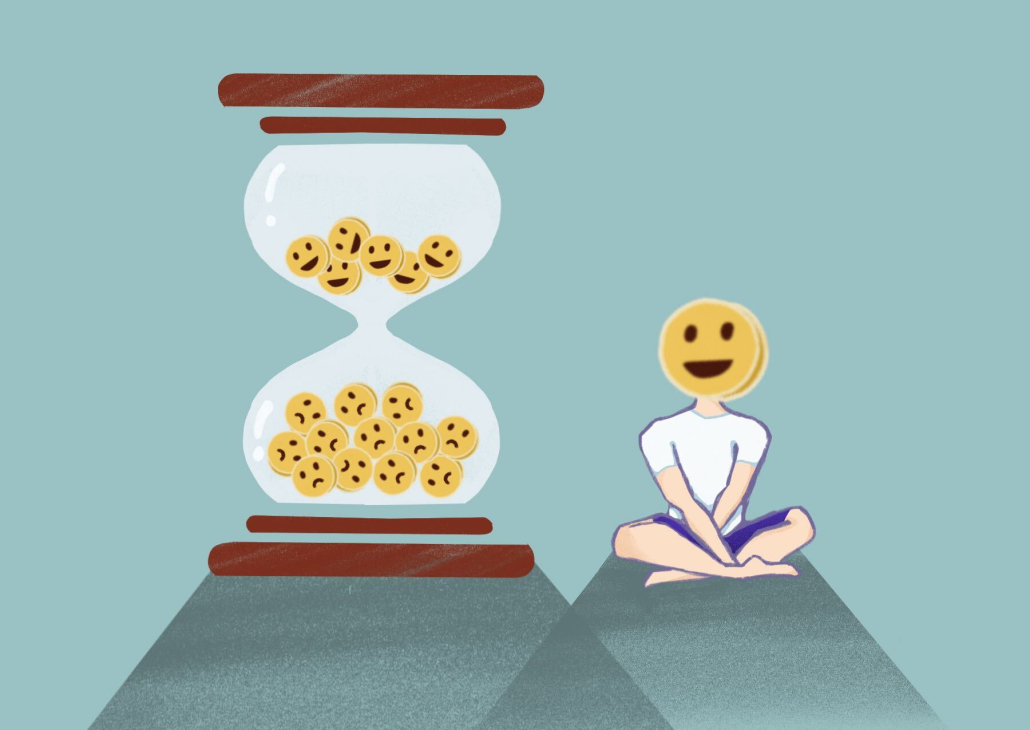Good Taste: Don’t talk to me until I’ve had my coffee

I find it nearly impossible to start my day without some type of caffeine. As I’m rushing to class, I gulp my Starbucks grande Cold Brew Coffee and plan out how I will tackle my to-do list. Rather than getting enough sleep or eating a healthy breakfast, I rely on the power of coffee to survive the constant barrage of deadlines.
Most of us compensate for missing hours of sleep with some form of caffeine. The average American consumes 135 mg of caffeine each day, which is equivalent to 1.5 cups of coffee. At the same time, Americans on average sleep 6.8 hours a night, lower than the recommended minimum of seven hours. We’ve found a way to swap our much needed sleep for a shot of energy in the morning.
In a capitalist system, we are valuable only when we’re working and making money. As a result, we do everything in our power to maximize our productive hours. Since sleeping and eating take time out of our day that could be spent working, we replace them with caffeine and fast food.
When our every moment is commodified, it’s nearly impossible to find time to look after ourselves, from eating dinner with our loved ones to getting enough sleep. Capitalism convinces us to compromise our health and happiness to maximize our working potential.
In the long term, these habits negatively impact our lifespan and quality of life. Eating healthy foods decreases the likelihood of chronic illnesses, including diabetes, heart disease or cancer, by 29-52%. Similarly, sleeping for 5-7 hours a night increases the risk of early death by 12%.
We may believe that swapping sleep for an energy drink buys us a few hours of productivity, but in reality, poor health habits shave years off our lives. Though the system expects workers to prioritize their jobs, finding ways to reject this mindset by caring for ourselves gives us more time to do what we love.
In some twisted way, the market has attempted to solve problems that it itself created. Workers have started to recognize that living for the job only brings them closer to death. The up-and-coming wellness industry has taken advantage of this movement by creating a variety of products intended to promote self-care.
In 2020 alone, the healthy eating, nutrition and weight loss industry brought in $946 billion. From Green Chef’s meal prep kits to Beam’s dream powder, corporations promise to manufacture healthy habits in a laboratory.
Regardless of how corporations market these products, the system cannot save us from itself. Meal prep kits and supplements may give us a few extra hours a week, they attempt to solve a symptom of a much larger problem.
Though these corporate health schemes streamline the process of meeting our body’s physical needs, they only worsen our attachment to productivity. Rather than forcing necessary lifestyle changes, they feed into our need for efficiency.
Instead of building a healthy work life balance, we use these supplements and replacements to spend as little time as possible away from work. Real change comes from restructuring our workplaces to view workers as humans as opposed to productivity machines. We need to create an economic structure in which self-care is no longer an inconvenience but rather a necessity.
Healthy lifestyle practices are not something that we can buy or check off a list. These practices extend beyond specific nutritional guidelines and include nurturing your social circle and prioritizing your happiness. There is no product on the market that can create connections and offer long-lasting happiness.
Food is one of the many ways we achieve these goals. While eating is a physical necessity, it also serves as a way to strengthen our relationships over moments of indulgence and laughter.
Meal prep kits may offer the most efficient way to give your body nutrients, but it’s the moments we spend dancing in the kitchen and laughing over family dinners that bring us joy and happiness.
Taking an extra hour out of my day to make my Grandma’s special pulao may not be as efficient as following a Green Chef recipe, but it gives me the opportunity to remember those who have come before me and connect with those around me. I would argue that is significantly more important than squeezing in an extra homework problem.
Reena Somani is a senior writing about food and its social implications. Her column, “Good Taste,” runs every other Tuesday.

